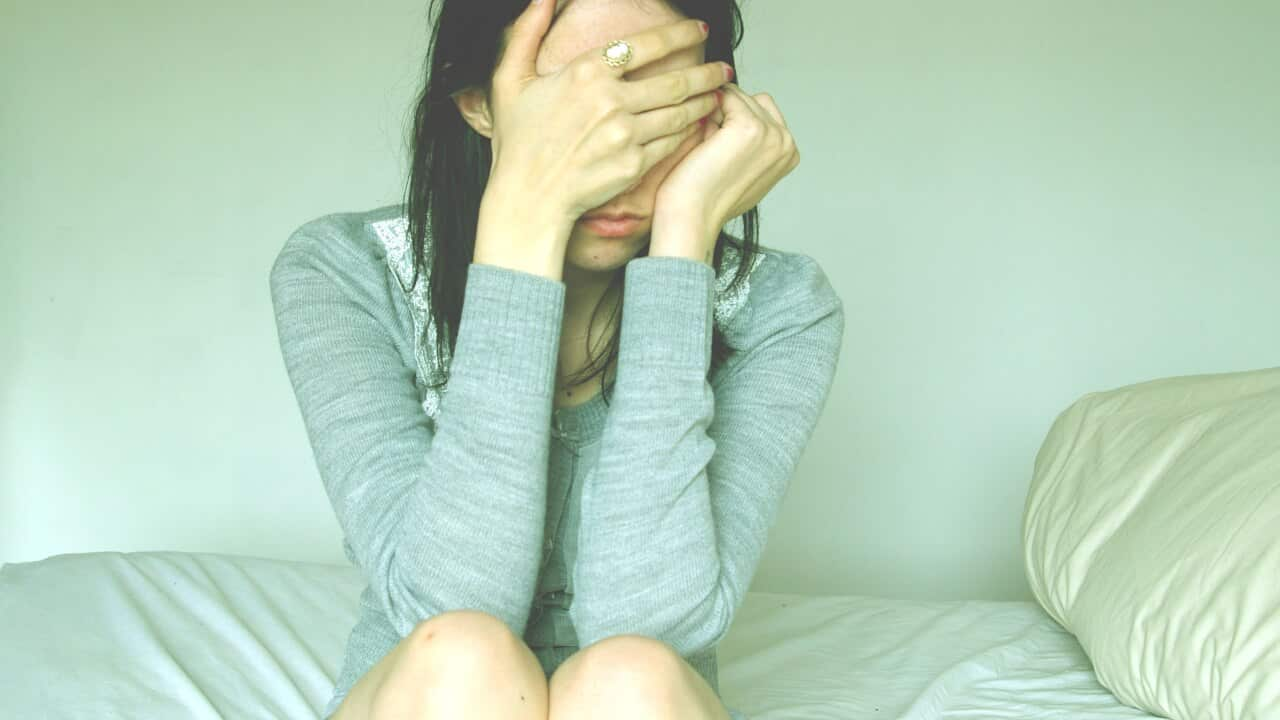In a recent interview with SBS Filipino, Mental Health Foundation Australia chairman Jim Goodin and MHFA multicultural ambassador Lora Love believes that the government is not doing enough to address the lack of community health services in Australia. "The sysytem is in chaos in a certain sense there is some money going to acute services but there is not a lot of money going into community services." says Jim of MHFA.
In 2016-2017 alone, suicide is the leading cause of death for ages between 15 and 44 years old. MHFA believes that suicide rates are yet to rise in the coming years making it a terrible social problem. "686 Victorians took their lives between 2016-17 and it is going up," says Jim.
While Jim believes that the government's 10-year mental health plan policy to try cut suicide in half by 2025 is a good move, he thinks that the suicide rates will still be high by that time. "It's a wonderful thought but we are going in the wrong direction, it's not happening. If we would cut it in half, it would still be higher from the Victorian road death rate. So there are 259 road deaths each year and if you would cut it, it's still massively out of whack".
A recent survey from the Royal Australian College of GP indicated that 62 per cent of the problems that GP deal with on a daily basis are mental health related. " We can't ignore that any longer. We can't as a community ignore that any longer. It's a frightening statistic," says Jim.
The role of family and community
The community and family members play an important role in keeping each member mentally healthy according to MHFA multicultural ambassador Lora. "They're playing a big role because they are the ones living with whoever is going through that. For a change to happen there needs to be an acknowledgement and acceptance. But also just the basic, are you okay? What's happening? Making time with the family, having a chitchat. We know our loved ones best so you know when they're behaving differently then it's okay for us to approach them," says Lora.
Lora is actively promoting mental health awareness throughout the Filipino community because she believes it is a calling that she is responding to and for someone who underwent a mental health ordeal, she wants to eliminate the stigma on mental illness. She admitted to seeking professional help to get her through the stages of depression. "Through external experiences from a very toxic relationship, I ended up having the black dog (depression). It broke me to a point that I didn't want to be around anymore," Lora says teary-eyed.
Keeping the mind strong and healthy
Social
Since stress is the first sign, Jim suggested that people should monitor themselves. "Just as we look after our nutrition, sleep and exercise patterns and all of those feed into mental health as well. We also need to monitor our stresses, what we put ourselves through. Understand and remember that each of us individually has a certain tolerance for stress and a major event can be a trigger, don't allow it to be a surprise, in a sense expect that might occur, " says Jim.
Psychological
Psychological disorders are used to refer to what are more frequently known as mental disorders or psychiatric disorders. Mental disorders are patterns of behavioural or psychological symptoms that impact multiple areas of life. These disorders create distress for the person experiencing these symptoms. "There are also other people that psychologically have a problem maybe just because their thought their way of thinking about things is too negative. We can retrain the way that we think so that we think a little bit more positively about things." Jim adds.
Biological
Another group of people are the ones suffering from a more biological condition such as schizophrenia, bipolar disorder, obsessive-compulsive disorder and a whole lot of neuro-developmental disorder. It is important to think of mental heath in terms of social, psychological and medical perspective because for each person it might be a combination of all things which makes it more complex. "If you're not coping with the things that you want to do with your life to make it more satisfying and happy, and there's something going wrong and you're not achieving your potential that you have set for yourself. That's the first indication that you might be struggling with your mental health and that's the time to do something about it," says Jim.
If a person is going through any mental struggle, it is best to do something about it now in order to disrupt the pattern of depression. "Prevention early intervention is much more likely to make a successful result than leaving it and having to be cured further down the track," adds Jim.
Lora urges families and communities to be mindful and understanding when a member opens up about their mental health journey. "Don't say it's all in the head. Unfortunately, in the Asian background, it's a big stigma. We need to be understanding and just listen. It's a big step for anyone who can finally open up to someone," Lora shares.
Jim stresses that mental health has a powerful link on all the other social issues in the country. " It feeds to everything else, it is a connection to homelessness, it is a connection to drug addiction, substance abuse. It links into so many other things. The key link in my view and the view of MHFA is individual mental health and community mental health".
ALSO READ:

